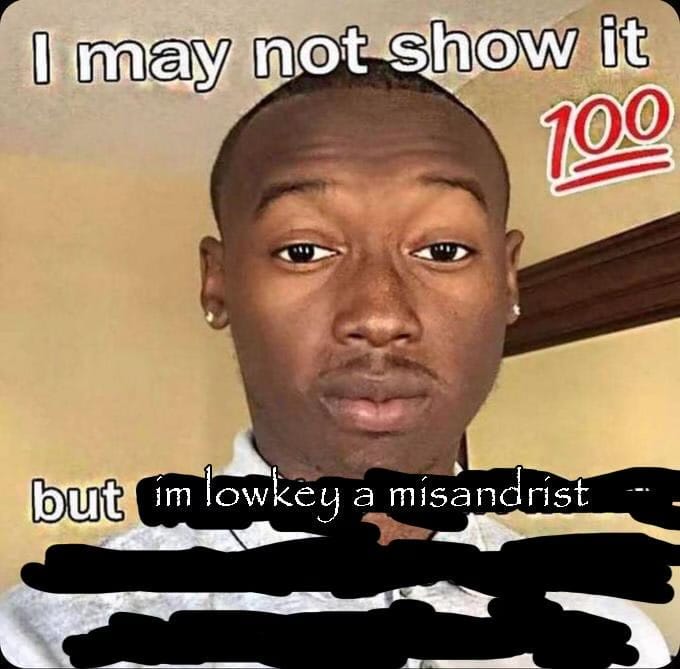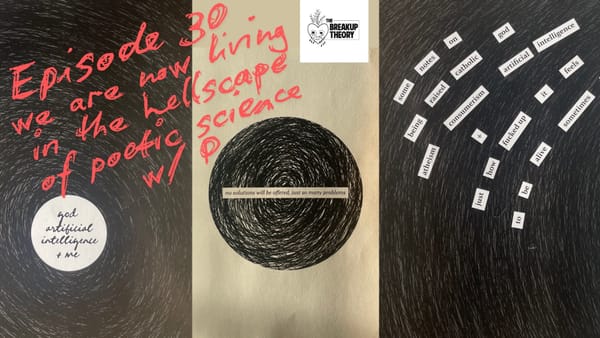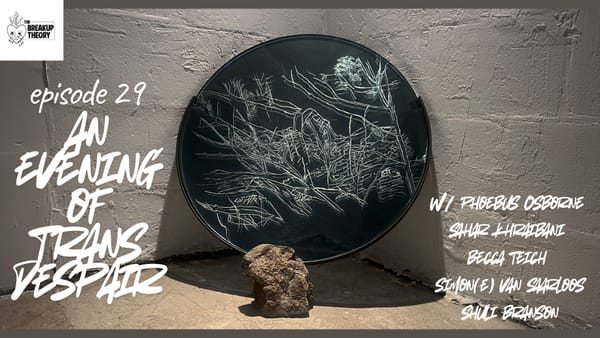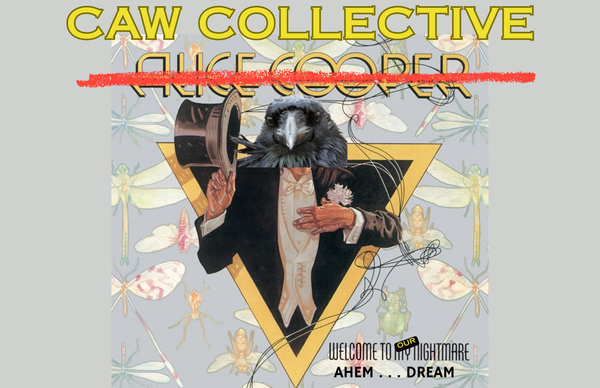On Manarchists
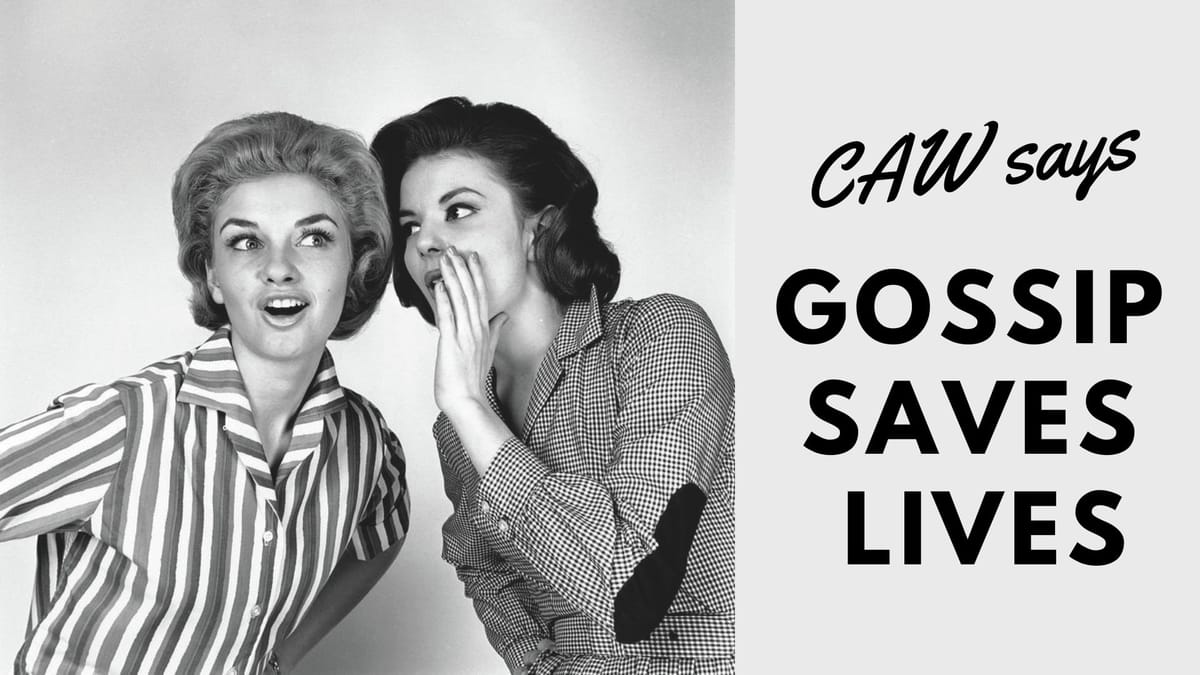
Dear CAW,
What’s going on with these manarchists? It’s 2025, have we not gotten past the tedious takeovers, the pointless pontification, the theoretical throwdowns, the fuckboy fuckery, the unaccountable accountability, the righteous reversals, the useless utopias, the know-it-all nay-saying, the abiding abuse, and the lamentable lack of insight? Once again, I’m forced to read the ponderings about how victims are the real problem, harming the movement, doing the work of police, anything but curiosity or commitment to what a survivor might need. The manarchist will play “oppression olympics” when it comes to calling into question his feminism. And some vague transformative justice is used to push trans/femmes out of movements. Are they capable of self-reflection? Can they sit the fuck down? I know it’s been discussed before, but what are your takes?
Sincerely,
Overit
NB: We do not use gender in this letter in an essentialist way. We all know a manarchist when we see one, regardless of gender—though we typically see this express itself in cis men. Similarly, the victims of a manarchists could be anyone. However, there is a phenomenon of cis men perpetrating abuse against people they don’t perceive of men, including trans femmes, cis women, and quite often, trans men, gender nonconforming, and nonbinary people.
Dear Overit,
You, nor we, are the only people to ask this question in exasperation. One would imagine that we could have already found an antidote to this problem, especially after Ray Filar’s superb “Notes Towards a Theory of the Manarchist.” But alas, like most of our social solutions to the constructed problems of cis-heteropatriarchy and the white supremacist state form and economic exploitation that attaches to it, the obvious and seemingly easy way to arrange things remains ever elusive—even to those that purport to share the same visions. Who hasn’t sat through a meeting listening to the mundane observations presented as truth by the guy who can’t shut up? Who hasn’t attended a workshop that is more like a hectoring lecture about why our movements fail?
In fact, these manarchists are the ones most likely to invoke the health of the “movement” to silence and deflect any attempt to dethrone their insidious social control. But there is no “movement,” no singular movement, except to those who worship the manly guerrila, the guy who subjugates everything thate he deems less important to his individualistic pursuit of glory. But really the thing that actually derails our collectives tends to be the harmful actions of such a man, forcing us desperately to seek ways to support victims or care for the inevitable fallouts of inexcusable behavior masked as praxis.
We too are sick of the vague notion of transformative justice and community accountability used to silence and isolate victims in order to prioritize the fake rehabilitation of a serial abuser who thinks nothing of his repeated harmful behaviors and is somehow impervious to callouts.
Well, enough of our own vitriol. What is to be done? Even the lesbian separatists did not solve the problem. We’ve read and reread Valerie Solanas—even the men have—to no avail. But maybe she was right and we need to recruit the men who actually want to become real people to form the Scum Auxiliary and proclaim themselves as lowly turds.
Or else, let’s forcefemme the world JKJK.
YOU EVER WONDER WHY SOME PEOPLE DON’T LEAVE A TRAIL OF VICTIMS WHEREVER THEY GO?
YOU EVER WONDER WHY PEOPLE CAN WRITE BOOKS AND FOSTER COMMUNITY NOT PREDICATED ON SEXUAL HARM?
You cannot even make them see the thin membrane that separates these manarchists from their incel and manosphere counterparts. They both seem to have inane podcasts. But we agree with the feminist insight that simply reversing the control of men over groups to the control of women won’t solve the problem. It’s a question of power not gender, and all the pretend healing of transformative justice doesn’t work.
Sure, the men and their defenders try to explain that callouts are harmful, do the work of the police, create witch hunts, perform the worst of cancel culture, reproduce bourgeois class systems, ostracize those who make the most important contributions to “the movement”—call you crazy and make you feel that way. But we at CAW believe that gossip saves lives.
Many of these abusers are people who hold a certain social power in scenes, and refuse to reflect on this power—instead they dance around it and make excuses in order to use it to get laid. Just as we see that every punk band with such a man in it tends to end their tours with a wake of harm, book tours end up being a kind of sexual tourism for the manarchist.
No one should believe that their contribution to anarchism is so important that they dismiss any call for them to step down and try to understand the way they wield power, perhaps even unconsciously (to give them the benefit of the doubt), and even when it doesn’t come to sexual harm. When we say no masters, we also mean no mastery. June Jordan pondered with her students how to “take responsibility without power.” This isn’t a simple aspiration, but one that we must keep in mind in our relationships. Can one of these men own up to something without trying to hold on to their esteemed position?
Do they ever stop to think about how other people who write and think and take bold action don’t leave a wake of trauma and survivors? They may whine about ostracization and isolation, but have they ever tried to speak up about their abuse and faced the consequences of a community built to defend the man who raped them? Even those who prioritize the voice of survivors tend not to be able to devote the time and organizing to help victims feel safe, and when the state seems your only recourse, you face another kind of institutional harm (typically perpetrated by men in uniforms) on top of the sneers of the “true” anarchists.
If you are a man in the anarchist scene and someone says you harmed or abused them, before you mobilize all the theory and weight of your status to your defense, sit with the idea that the person speaking out is not lying, that their experience is not (yet) an attack. Don’t, like our overarching rape culture, erase their callout with the dismissive claim about false accusations, some kind of jealousy to push you out of the scene. Take it on, and take a seat.
These men, too, have most likely been harmed in their lives. Few people escape the family, or school, or religious spaces without abuse. But the old adage “hurt people hurt people” doesn’t prioritize your therapy and healing over the people that you intentionally or unintentionally abuse yourself. We aren’t responsible for thinking of what you’re going through when we see another friend lose their friends and access by upsetting the countercultural social order. Besides, it’s a statistical misreading of this old adage, and often an excuse wielded by abusers and their supporters. The truth is, it’s very rare for an abused kid to grow up and abuse others.
Let’s toss out “community accountability” and “transformative justice” as already co-opted by manarchists. We know there has been a return to vengeance, to the other old slogan “kill your local rapist.” Do you think this is a misdirected violence or actually a cry from the hopeless for a feeling of autonomy in countering those who perpetrate violence in the name of anarchy?
The problem of patriarchy isn’t simply theoretical or abstract: it’s in the behavior of individuals, working as vessels for these vectors of power. You’re a conduit and you didn’t know it. And so, we must consider each action we take, each relationship we nurture, to their smallest detail as a site of the potential enactment of power—and steer ourselves away from wielding it over others. You have to question yourself about how you might be doing this, especially if you are the kind of person that people just seem to listen to and adulate. If you want to call identity politics a distraction from true liberation, listen to Cathy Cohen, who reformulated identity as coordinates of relationship to power from which we can make unlikely alliances while acknowledging differences that don’t need to divide us.
We are so sick of these “thought-pieces” working as refusals to sit for a second and take people at their word, diagnosing instead a systemic injustice against men—and god forbid, put yourself to the test.
In other words, perhaps all we can do is tell them to shut the fuck up already.
For those of us who daily face these harms, big and small: in the anarchist tradition, crew up with the others who can call bullshit and confront this behavior dead on. Don’t accept their thought pieces telling us we are the real problem. Spread the word and show up. Don’t allow them to wield shadow power. Don’t stop saying it. Don’t let another survivor fade away into individualized pain and solitude.
You can trust your feelings even when they arm themselves with theory, and just keep naming it and countering it (interpret that however you want) till they stop fucking doing it.
Some additional thoughts: there is a reason more of us, including many if not most of the trans women we know, are especially reaching back to the negative radical feminists despite their glaring flaws. Men under cloak of allyship reinvent their blatant violence as a kindness that can kill.
Read C.E.’s “Undoing Sex” in the first issue of the feminist journal LIES, where they make a compelling case that there is no possible sex within a rape culture that brings us to our freedom, that doesn’t in some way replicate harm, that rape is not an accident or something separate from good sex. Perhaps this is something no one wants to hear, but holding it in mind does help us understand the reasons we continue to feel this way, and that hovering at the edge of every encounter is the possibility of harm. We are pummeled with sex positivity, polyamory, and kink as if these are antidotes, or nascent forms of family abolition and anarchist utopia. But nothing is free from this violence, even when it’s not there. And so these manarchists who refuse to look will always repeat it. If we really want to be social constructionists, then rather than trying to mobilize truth against lie, we need to put things in this frame and acknowledge that anything can carry harm and violence.
The model of consent is not sufficient, as it implies an infinite regression of yeses for behavior that proceeds over time. And so silence is inscribed in consent that disables one of us from speaking out. C.E. insists that sex is always a one-sided affair, and as we are primed by culture to seek it in order to discover ourselves, it’s always at the expense of someone else. This is the very model of all self-discovery and actualization. There is no way that we become individuals in this society without harm. And rather than use that to excuse our participation in it—particularly those most disposed culturally to be harm’s vessels—we need to weigh this in every interaction and use this violence and power as a compass, something against which we take our actions. The real allyship is to refuse complicity and this means not tying logic into knots to defend the men who cause harm and violence.
Of course, women cause harm too, seeing as how we are all part of this machine and our actions are determined by it, but it’s much less likely that everything is arranged to let our bad actions fade into the background, and much more likely in the instances where a non-cis man causes harm that people actually listen to the victim.
Sincerely,
Shuli
